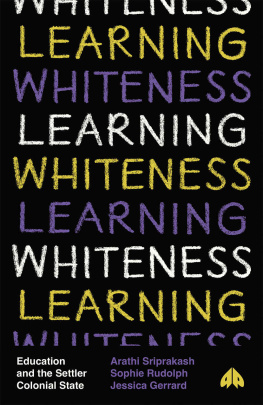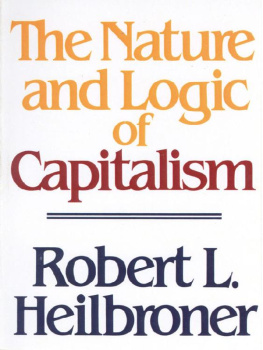Iyko Day - Alien Capital: Asian Racialization and the Logic of Settler Colonial Capitalism
Here you can read online Iyko Day - Alien Capital: Asian Racialization and the Logic of Settler Colonial Capitalism full text of the book (entire story) in english for free. Download pdf and epub, get meaning, cover and reviews about this ebook. year: 2016, publisher: Duke University Press, genre: Romance novel. Description of the work, (preface) as well as reviews are available. Best literature library LitArk.com created for fans of good reading and offers a wide selection of genres:
Romance novel
Science fiction
Adventure
Detective
Science
History
Home and family
Prose
Art
Politics
Computer
Non-fiction
Religion
Business
Children
Humor
Choose a favorite category and find really read worthwhile books. Enjoy immersion in the world of imagination, feel the emotions of the characters or learn something new for yourself, make an fascinating discovery.

- Book:Alien Capital: Asian Racialization and the Logic of Settler Colonial Capitalism
- Author:
- Publisher:Duke University Press
- Genre:
- Year:2016
- Rating:3 / 5
- Favourites:Add to favourites
- Your mark:
- 60
- 1
- 2
- 3
- 4
- 5
Alien Capital: Asian Racialization and the Logic of Settler Colonial Capitalism: summary, description and annotation
We offer to read an annotation, description, summary or preface (depends on what the author of the book "Alien Capital: Asian Racialization and the Logic of Settler Colonial Capitalism" wrote himself). If you haven't found the necessary information about the book — write in the comments, we will try to find it.
Iyko Day: author's other books
Who wrote Alien Capital: Asian Racialization and the Logic of Settler Colonial Capitalism? Find out the surname, the name of the author of the book and a list of all author's works by series.
Alien Capital: Asian Racialization and the Logic of Settler Colonial Capitalism — read online for free the complete book (whole text) full work
Below is the text of the book, divided by pages. System saving the place of the last page read, allows you to conveniently read the book "Alien Capital: Asian Racialization and the Logic of Settler Colonial Capitalism" online for free, without having to search again every time where you left off. Put a bookmark, and you can go to the page where you finished reading at any time.
Font size:
Interval:
Bookmark:
ALIEN CAPITAL
ALIEN
CAPITAL
ASIAN RACIALIZATION AND THE LOGIC
OF SETTLER COLONIAL CAPITALISM
IYKO DAY
Duke University Press | Durham and London | 2016
2016 Duke University Press
All rights reserved
Printed in the United States of America on acid-free paper 
Designed by Heather Hensley
Typeset in Whitman by Tseng Information Systems, Inc.
Library of Congress Cataloging-in-Publication Data
Day, Iyko, [date] author.
Alien capital : Asian racialization and the logic of settler
colonial capitalism / Iyko Day.
pages cm
Includes bibliographical references and index.
ISBN 978-0-8223-6079-7 (hardcover : alk. paper)
ISBN 978-0-8223-6093-3 (pbk. : alk. paper)
ISBN 978-0-8223-7452-7 (e-book)
1. CapitalismSocial aspectsNorth AmericaHistory.
2. AsiansRace identityNorth America. 3. AsiansNorth
AmericaPublic opinion. 4. Stereotypes (Social psychology)
North America. 5. North AmericaRace relations
Economic aspects. I. Title.
HC95.D35 2016
305.89507309034dc23 2015034387
Cover art: Tommy Ting, Workers Posing as Workers
(Chinese Workers for the Great Northern Railway) , 2013,
inkjet print, recycled wood, 167 298 cm.
Duke University Press gratefully acknowledges Mount Holyoke
College, Dean of the Facultys Office, which provided funds
toward the publication of this book.
For
DAVID
and
TEI
CONTENTS
It is a welcome pleasure to reflect on entirely different forms of debt and exchange value than those covered in this book. In another world I would send each friend Ive neglected to mention here a nice box of chocolates. Words arent enough, but for now they are a taste of my sincere gratitude to those who helped see me through this project.
This book was inspired and nurtured by great conversations with very smart people, generous readers, and an abundance of external sources of optimism and humor. For many years I have been blessed with the brilliant likes of David Hernndez and Jodi Kim; these two have always been my first line of intellectual support, reading numerous drafts, answering a thousand questions, and hearing out all of the turns in my thinking. In Sylvia Chan-Malik and Wes Yu I could not have asked for smarter interlocutors or more sustaining friendships. This work also benefited from the inspiration and wisdom of longtime friends and coconspirators Dory Nason, Danika Medak-Saltzman, and Ofelia Cuevas. Years have passed since my days as a graduate student, but I remain indebted to my professors at UC Berkeley. I continue to be in awe of the brilliance and grace of my dissertation adviser, Sau-ling Wong; the instincts and generosity of Elaine Kim; and the friendship and steadfast support of Michael Omi. And a long-overdue thanks must go to Chris Nealon, not least for encouraging me to read Moishe Postones Time, Labor, and Social Domination , which became an indispensable anchor for this book.
Networks across the United States and Canada were crucial for providing intellectual spaces for the development of my ideas. Mount Holyoke College has been an incredibly generative place to carry out this work, and Im grateful to my wonderful colleagues in the English department for their supportive engagement over the years. I owe a special debt to Nigel Alderman, Don Weber, Amy Martin, and Elizabeth Young for all of their wise counsel in both research and teaching. Likewise, I am grateful for my colleagues in the Five College Asian/Pacific/American Studies Program for all of the intellectual sustenance they provided. The Connecticut Valley has been an unexpectedly vibrant cultural space, and it has been my pure fortune to have had the opportunity to cross paths with Asha Nadkarni, Diana Yoon, Manu Vimalassery, Jane Degenhardt, Sujani Reddy, Ronaldo Wilson, Tony Tiongson, Siraj Ahmed, Floyd Cheung, and Cathy Schlund-Vials. In Southern California I have cherished the limitless generosity, wisdom, and friendship of Mariam Lam, Setsu Shigematsu, Keith Camacho, and Dylan Rodrguez. Beyond nation-state lines, I am grateful for my fellow Asian Canadianists Chris Lee, Rob Ho, Marie Lo, Henry Yu, Thy Phu, Lily Cho, Guy Beauregard, and Andy Yan. I dont see them enough, but our conversations over the years have taught me so much about the country that Richard Rodriguez once referred to as the largest country that doesnt exist. Extra-special thanks goes to my editor Courtney Berger for her openness, encouragement, and amazing professional acumen. She is simply the best. I am similarly indebted to the anonymous reviewers for their indispensable editorial advice on the manuscript, as well as to the peer reviewers of an earlier version of the second chapter, which appeared as Tseng Kwong Chi and the Eugenic Landscape in American Quarterly 65.1 (2013).
I close with thanks to my dear family. I am ever amazed by my talented mother, Yumie Kono; Im grateful to her for infusing my life with beauty and art. My father, George Day, has continually uplifted me with his humor, optimism, and generosity. Heartfelt appreciation goes to Jack Day, Wendy Lynwood, Donna Day, and the rest of the Day, Kono, and Hernndez clans for their love and support. Finally, I am grateful to David Hernndez and our daughter, Tei, for a home life that is equal parts love and pure fun. This book is for them.
No Jew can smell out with keener instinct an opportunity where money can be made to grow than can a Chinaman.
Atlantic Monthly , 1900
Racial Capital
In August 2012, Bank of Canada governor Mark Carney issued a public apology for purging an image of a female Asian scientist from the newly designed one-hundred-dollar polymer banknote. She was replaced by a Caucasian-looking woman

FIGURE I.1 One-hundred-dollar Canadian bill, Bank of Canada.
This controversy highlights this books central focus on the interplay of Asian racialization, capitalism, and settler colonialism that, as I will develop below, reveals an economic modality that links constructions of the Asian and the Jew. At first glance, the controversy sheds light on the ever-simmering tension between race and national culture in Canada. In particular, the banks equation of a Caucasian-looking woman with race neutrality exposes the normativity of whiteness in an officially multicultural nation. That an erased woman of colors body serves as the battleground for adjudicating cultural legitimacy participates in a long-standing objectification of nonwhite female bodies as litmus tests of racial, gender, sexual, and here national normativity and deviance. For the Chinese Canadian National Council, Angry Asian Man, and countless other bloggers and YouTube vloggers, the controversys significance turns on the variable race of the scientist against the assumed stability of the money form of capital as a representation of nation. To restore the Asian-looking characteristics to the scientist would, by extension, restore equilibrium between race and nation. But what seems to be missing from this discussion is the peculiar intersection of race and moneyof race as a form of money, or vice versa. How do we understand the variability of money as capitalist (rather than solely nationalist) fetish and its own racialized personas?
For the purposes of this book, the controversy dramatizes ways that Asian North Americans are uncomfortably associated with capital. More benign expressions of this association arise out of recognition of the upward economic mobility of Asians in North America over the twentieth century, which, at least temporarily, secured Asian Canadian representation on the Canadian one-hundred-dollar bill and have earned Asian Americans the title of the new Jews. the attributes of Asians in Asia and North America are to be ignored at ones economic peril.
Next pageFont size:
Interval:
Bookmark:
Similar books «Alien Capital: Asian Racialization and the Logic of Settler Colonial Capitalism»
Look at similar books to Alien Capital: Asian Racialization and the Logic of Settler Colonial Capitalism. We have selected literature similar in name and meaning in the hope of providing readers with more options to find new, interesting, not yet read works.
Discussion, reviews of the book Alien Capital: Asian Racialization and the Logic of Settler Colonial Capitalism and just readers' own opinions. Leave your comments, write what you think about the work, its meaning or the main characters. Specify what exactly you liked and what you didn't like, and why you think so.






